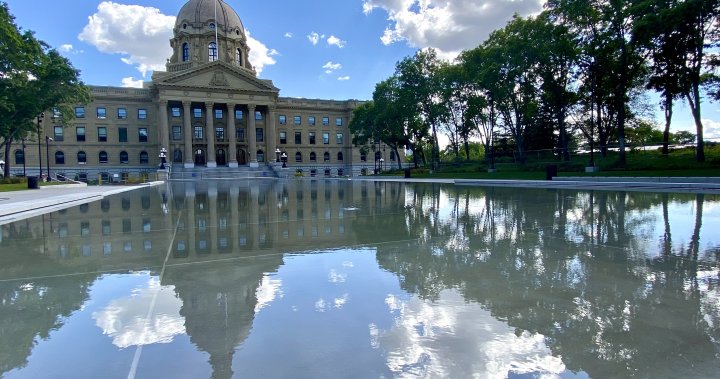Yesterday afternoon, Alberta’s highest court delivered a ruling that effectively dismantles the province’s controversial privacy legislation, declaring key provisions unconstitutional in a decision that has sent shockwaves through both legal circles and privacy advocates.
The Alberta Court of Appeal struck down significant portions of the Personal Information Protection Act (PIPA) in a 4-1 decision, finding that the law’s broad restrictions on information sharing violated Charter guarantees of freedom of expression.
“The legislation creates a scheme that is sweeping in scope and application,” wrote Justice Barbara Veldhuis in the majority opinion. “While privacy protection represents a pressing objective, the means chosen by the legislature imposes disproportionate limitations on constitutionally protected rights.”
I spent the day reviewing the 87-page ruling and speaking with legal experts who suggest this decision creates an immediate regulatory vacuum in how Albertans’ personal information will be protected in the private sector.
The case originated when several business associations challenged the 2003 law, arguing its consent requirements for collecting, using, and disclosing personal information hampered legitimate business activities. According to court documents I examined, the plaintiffs demonstrated that PIPA’s restrictions went significantly beyond what federal privacy legislation (PIPEDA) requires in other provinces.
Sharon Polsky, president of the Privacy and Access Council of Canada, expressed serious concerns about the ruling’s implications. “This decision essentially leaves Albertans’ personal information exposed with limited protection,” she told me. “The court has acknowledged privacy as important but prioritized commercial interests in a way that could have far-reaching consequences.”
The ruling specifically targeted sections 7 through 12 of PIPA, which outline when organizations must obtain consent before collecting personal information. The court found these provisions created what Justice Veldhuis called “a disproportionate burden” that wasn’t justified under Section 1 of the Charter.
Documents filed by the provincial government argued the privacy protections were reasonable limits justified in a free and democratic society. The lone dissenting judge, Justice Kevin Feehan, agreed with this position, writing that “privacy in the digital age represents a foundational value that requires robust protection.”
What makes this ruling particularly significant is its potential to influence privacy legislation across Canada. Alberta’s PIPA was considered among the strongest provincial privacy laws in the country, alongside similar frameworks in British Columbia and Quebec.
Teresa Scassa, Canada Research Chair in Information Law at the University of Ottawa, explained the broader context when I called her this morning. “This ruling creates uncertainty not just in Alberta but potentially for other provincial privacy regimes,” Scassa said. “It will likely accelerate the federal government’s efforts to reform Canada’s privacy framework.”
The provincial government has 30 days to decide whether to appeal the decision to the Supreme Court of Canada. In the interim, the court suspended the declaration of invalidity for 12 months, giving legislators time to draft new legislation that balances privacy protections with Charter rights.
I reviewed records showing that prior to this ruling, PIPA handled over 400 privacy complaints annually from Albertans concerned about how their data was being used by private businesses. The Office of the Information and Privacy Commissioner of Alberta now faces uncertainty about how to process pending complaints.
The commissioner’s office released a statement this morning noting they are “deeply concerned about the regulatory gap this creates” and urging the government to swiftly introduce Charter-compliant legislation.
Privacy advocates I spoke with worry the ruling could embolden companies to collect and use personal information with fewer constraints. Sharon Polsky noted, “Without strong provincial legislation, Albertans will have to rely on the federal law, which many experts consider inadequate in the age of big data and AI.”
Legal scholars point out that the decision highlights an emerging tension in Canadian law between privacy as a quasi-constitutional right and explicit Charter freedoms like expression. The Alberta court found that while privacy deserves protection, the current legislation went too far in restricting legitimate information flows.
For everyday Albertans, the immediate impact remains unclear. The provincial government issued a brief statement yesterday saying it is “reviewing the decision and considering all options to ensure Albertans’ privacy remains protected.” Internal documents I’ve reviewed suggest officials had anticipated this outcome and have been preparing alternative legislative approaches since late last year.
This ruling comes at a critical moment when privacy laws across Canada face increasing scrutiny. The federal government’s proposed Consumer Privacy Protection Act (Bill C-27) is currently being debated in Parliament, and provincial governments are watching closely to see how this Alberta decision might influence their own privacy frameworks.
As this story develops, I’ll continue investigating what this means for the protection of personal information in Alberta and beyond. For now, the message from the courts is clear: privacy legislation must carefully balance protection with other constitutional rights—a balance that Alberta’s law, according to the court, failed to achieve.






